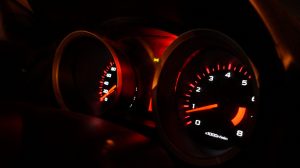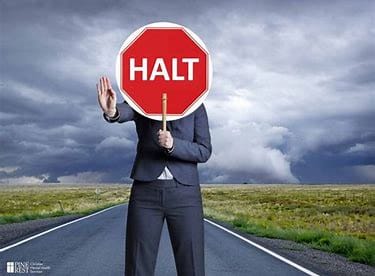I recall being in a treatment centre some years back. It was early in my attempts at recovery. I was waiting to be seen by a medical professional and sat nervously in a waiting area scanning the posters and leaflets that were laid out. Most contained snappy slogans or acronyms one which even then stood out.
“HALT! Are you Hungry, Angry, Lonely or Tired” – read?
In my bitterness at the world as a result of years battling addiction, I recall thinking to myself “What a stupid question. Of course, I am”.
During my active addiction, if I had money it was going on substances, not food. I certainly was hungry. I had a bitter and distorted view of life. Anger was my constant companion. My good friends and family were keeping away and I trusted no one. I was lonely. I could feel alone even in a crowd.
Finally, I was tired, I was emotionally at my end, beaten and frightened. I just didn’t know what to do. My very best thinking had got me in that treatment room. So, to me, that poster was stating the obvious in my life.
Little did I know it would be a successful tool I could use on my journey into recovery, a tool I still refer to this day to successfully diagnose the cause of my irritations and stay on clean and sober.
What does it mean to H.A.L.T.?
H.A.L.T. is a powerful tool we can use in recovery to check our energy and attitude throughout the day. Using it correctly helps to identify feelings that may be new or confusing in recovery.
 In life, I was used to two main feelings. Pleasure when I had drugs. Anger when I did not. So, in recovery, I wanted to categorise every feeling the same way. Am I feeling pleasure, in other words happy? Or am I feeling angry (or sad)?
In life, I was used to two main feelings. Pleasure when I had drugs. Anger when I did not. So, in recovery, I wanted to categorise every feeling the same way. Am I feeling pleasure, in other words happy? Or am I feeling angry (or sad)?
I didn’t really know how to communicate the plethora of feelings that lie in between these two emotional points. I had, if truth be told, no way of even identifying them. HALT helped me change this.
Halt means to stop. It’s an invitation to pause, and allow my mind to simply be still. As a person in recovery, it is very rare my mind is in a still state. My brain is normally whirring at a million miles an hour and obsessing on many things at once.
However, to simply stop, and be still, comes as a relief. From this point I can breathe and ask myself: am I…
H – Hungry
This one seems obvious—do you need to eat? And not just eat to stay alive but eat well so you are truly nourished. In a world where we are so busy, so many of us eat things that are handy, not necessarily nourishing.
In addition, hunger can be about more than food though. Maybe you’re hungry in relation to an emotional need. Are you hungry for comfort? For understanding? For affection?
A – Angry
If yes, then ask yourself: what am I angry about?
Are you angry at another person, a particular situation or maybe even you are angry at yourself? Anger is risky as it leads to instant reactions, often non-rational and based in fear. It is important if we identify anger and deal with it in a constructive way.
We have tools to deal with fear in relation to anger. Some options are freewriting, or phoning a therapist or recovery peer. Some might find it useful to attend a self-help meeting whilst others will meditate.
L – Lonely
 It’s human nature to desire connection and support. We have a need to feel part of a community and wish to relate to others. I guess that’s why so many of us find recovery in the rooms of mutual aid groups.
It’s human nature to desire connection and support. We have a need to feel part of a community and wish to relate to others. I guess that’s why so many of us find recovery in the rooms of mutual aid groups.
Asking yourself if I am lonely is asking yourself: am I feeling isolated? Am I feeling equal, appreciated or nurtured in a relationship – professional, romantic or friendship related? If you identify loneliness, you need to reach out and connect.
T – Tired
The benefits of a good night’s sleep are well documented. However, tiredness may be due to more than just sleep deprivation.
As people in recovery, we often overstretch ourselves, often to please others. We may agree to too many commitments and have several metaphorical plates spinning at once.
We do things at great speed and haste as we try to ‘blast’ through hectic and detailed to-do lists each day.
This can leave us feeling; overstretched, overwhelmed and stressed out. It is important we ask ourselves regularly “why do I put myself in this position” what can we learn from our eagerness to please and willingness to commit to so much in one day?

Sometimes we just have to rest, it’s times to stop running on fumes. The feeling of being tired is a great indicator that we often need some time to ourselves. It usually means I’m focussing on everything else at the expense of myself.
This presents the perfect opportunity to practice some self-love. To tend to our spiritual side and meditate or practice yoga. Others will find creative outlets such as art or music. Whatever we do, when we identify we’re tired. Emotionally stretched out it is important we used that as a sign to focus on ourselves.
T-Thirsty
Over time another ‘T’ has been added to this acronym. It stands to reason given the importance of taking on fluids, that another reason for why we are irritated is that we are, after all, thirsty and in need of some fluids. Water can refresh us and significantly impact our productivity and emotions
Remember ‘IRD’ worm. ‘IRD’! Meaning irritation, restlessness and discontent. Use this as an indicator that there is something, often obvious internally, going wrong with yourself. Allow this to act akin to how a warning light on an automobile dashboard would work.
Just as a mechanic would run a diagnostic on a car, in reply to a flashing dashboard warning light to identify the source of the problem. Running the H.A.L.T.T. diagnostic on myself, at the sight of my irritation, restlessness or discontent. Will serve the same means.

There are many barriers to having a full and content life in recovery. Poor self-care as a result of unchecked emotions will further hinder us from living out, our best life.
Maybe next time you’re feeling out of sorts you’ll learn to HALT. In that paused moment you’ll run, this simple yet effective diagnostic. Helping you understand the reason why you’re feeling, so “out of key”.
As a person in recovery, all of us need tools, to help prompt us to take meaningful action that won’t jeopardise our hard-won sobriety.
H.A.L.T.T. is a very successful way of doing just that.



